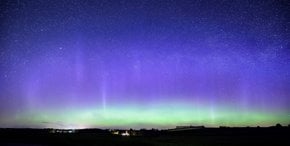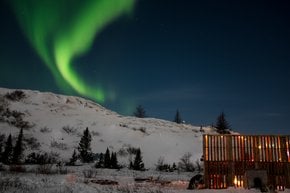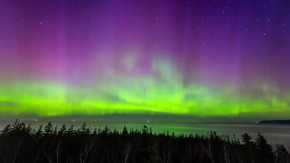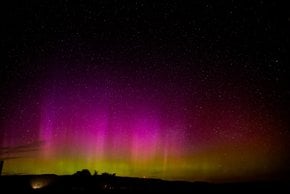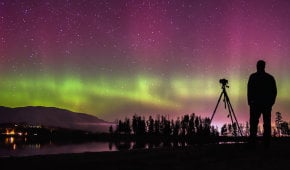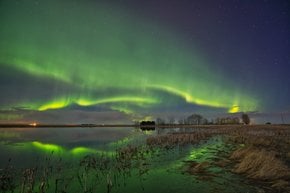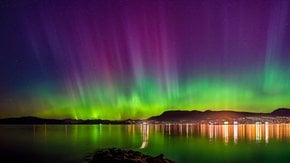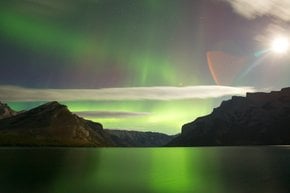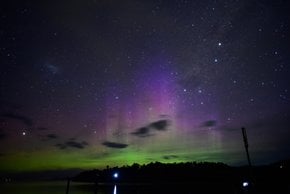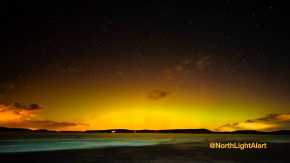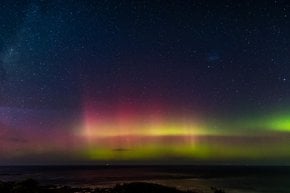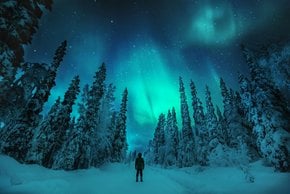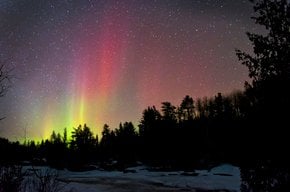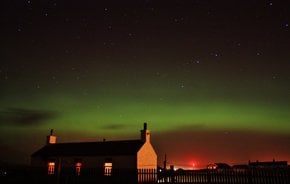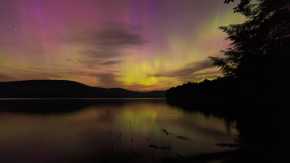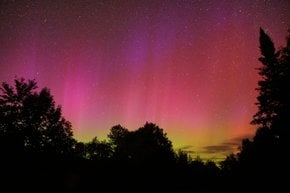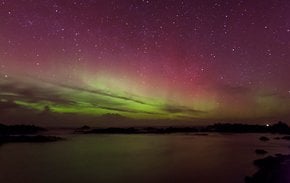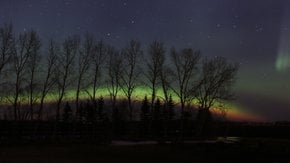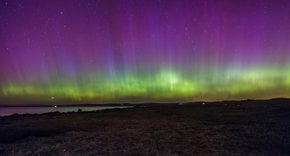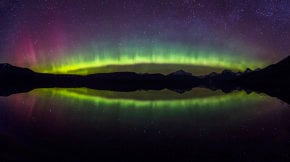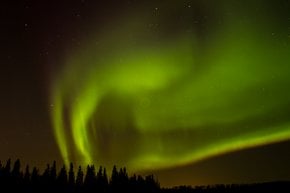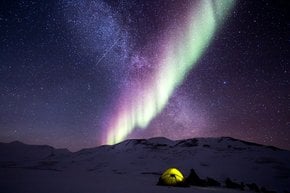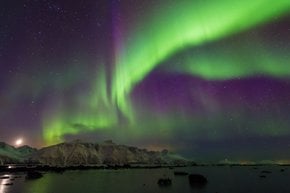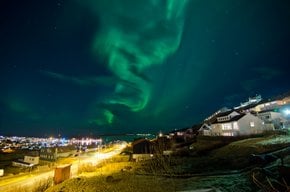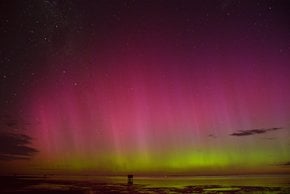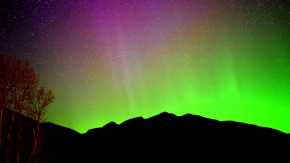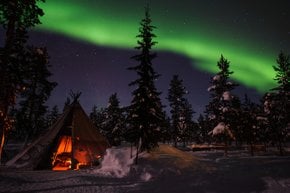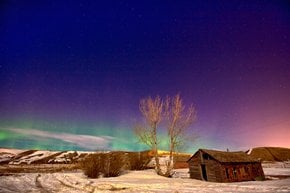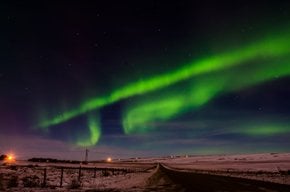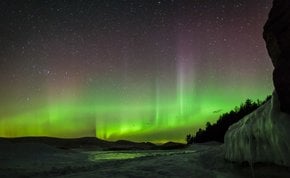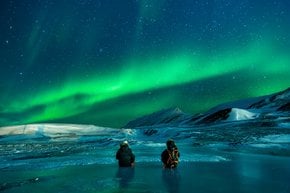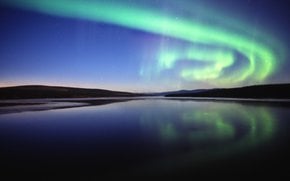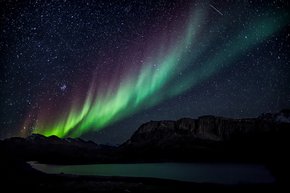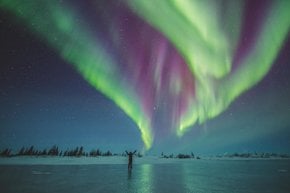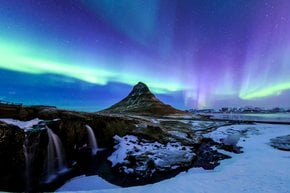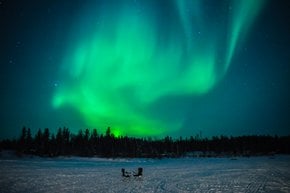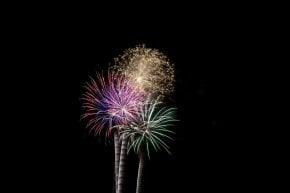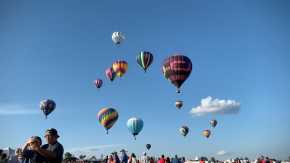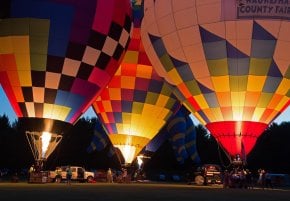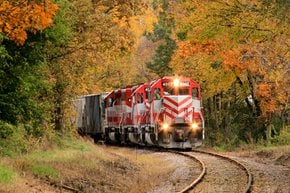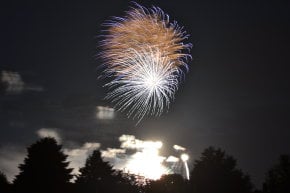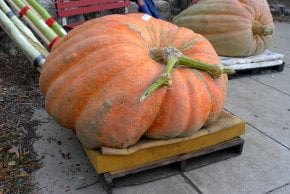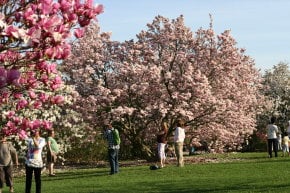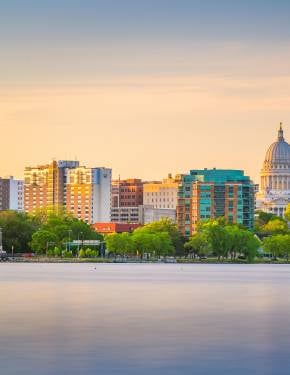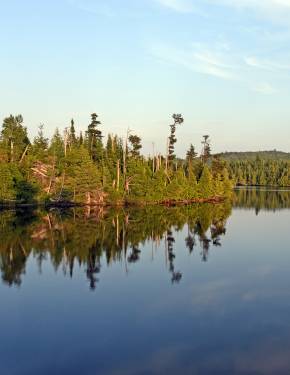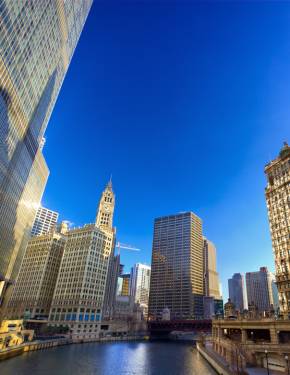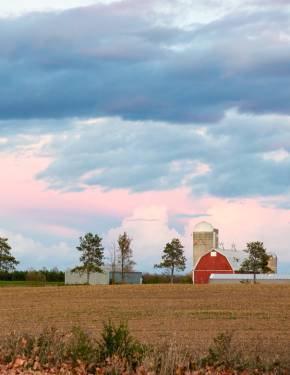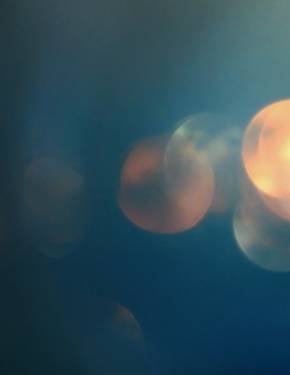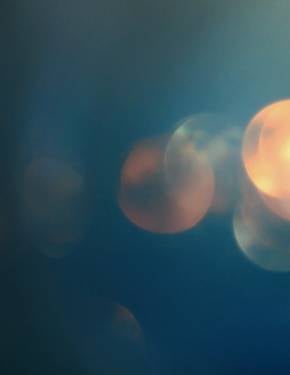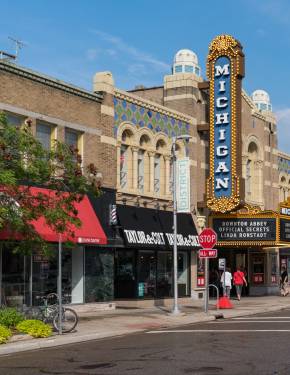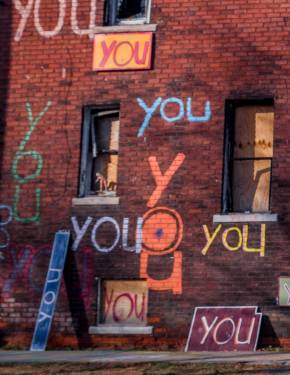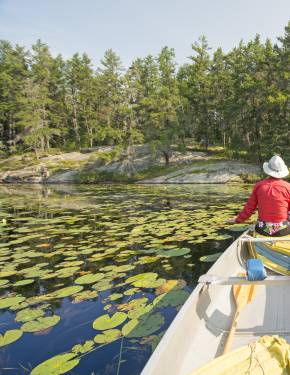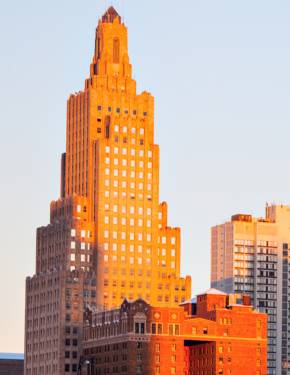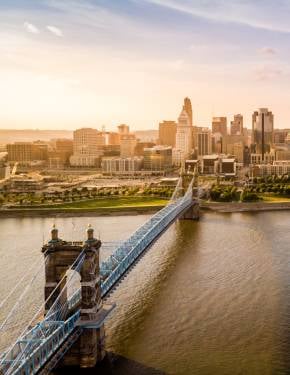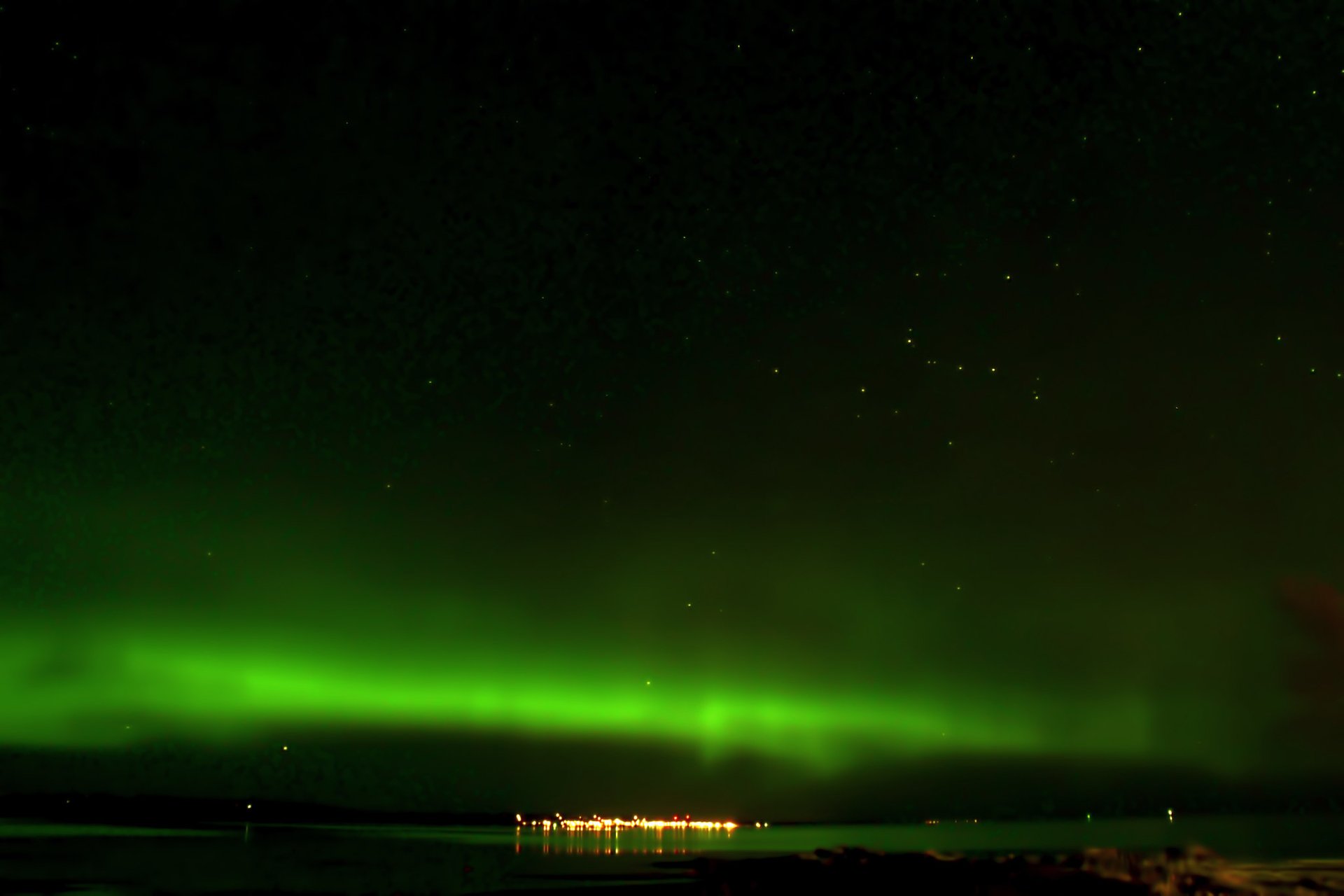

Wisconsin is well-positioned to enjoy the rare sight of aurora borealis. Beautiful dancing lights, coloring the skies in green, red, and purple, can be seen the best in the northeastern part of the state when the skies are dark, and there is enough geomagnetical activity that causes the natural phenomenon. Aurora chasers have to check special websites measuring geomagnetical or solar activity in the KP-index. You need KP to be more than 5 to be able to see something in Wisconsin.
When you are expecting a solar storm that may cause auroras, try to get out of the city to minimize the impact of light pollution. Solar particles interact with specific atoms in Earth's atmosphere to create the colors of aurora borealis and australis. You will most probably see a faint green glow on the horizon, which will not be as impressive as auroras in Alaska or Yukon. However, if you photograph the phenomenon with a long exposure, you can actually see more glow and colors on camera than with the naked eye.
Aurora borealis season in Wisconsin
The season for aurora borealis in the Northern Hemisphere generally runs from September through March. Autumn and spring often experience solar storms, so there are more chances to see aurora borealis. Summer skies are quite dark in Wisconsin, so seeing aurora is a possibility.
The best time for viewing Northern Lights
The darkest hours of the night, from approximately 11 pm to 2 am, are commonly the best times to look for auroras. Aurora hunters may have to stay up late, as it's hard to predict exactly when they'll appear. You don't need any special equipment to see the northern lights.
Aurora Borealis by Lake Michigan
Door County is the premier destination for aurora chasers in Wisconsin. Surrounded by the waters of Green Bay on one side and Lake Michigan on the other side, Door County has dark skies and low light pollution, especially as you move north. Aurora can be seen from an observation tower near Potawatomi State Park in Sturgeon Bay. Or you can move further north and see it near North Bay and Rowleys Bay. Visit Newport State Park, a designated dark-sky reserve in Wisconsin. Washington Island is another iconic spot in North Door County where locals enjoy the beautiful phenomenon on a regular basis.
Aurora Borealis by Lake Superior
Lake Superior is one of the best locations for observing the northern lights in the Midwest. The Wisconsin coast also boasts quite a few scenic spots by the water where aurora enthusiasts can see the elusive lights. Most good locations to see the aurora borealis are in Ashland and Bayfield counties.
Apostle Islands National Lakeshore, featuring 21 islands and 12 mi (19 km) of Lake Superior coast, is an ideal spot for an aurora borealis hunt. You can also visit the Nourse Sugarbush State Natural Area, which has dark skies and beautiful scenery. Your best chance to catch a glimpse of the aurora will be during a clear, dark night with a young moon.
Practical info
What is the best time to see aurora borealis in Wisconsin?
Aurora borealis in Northern Hemisphere can usually be seen from September through March. Higher chances of seeing them occur during solar storms that happen mainly in autumn and spring. During summers in Wisconsin, the skies are dark enough to spot auroras. Show more
Which areas in Wisconsin are most suitable for aurora hunting?
The most popular areas to hunt for auroras in Wisconsin are Door County, Ashland and Bayfield counties, and the Apostle Islands National Lakeshore. Lake Superior is another suitable location to observe northern lights in Midwest. Door County has low light pollution, especially as you travel further north. Show more
Can aurora borealis be seen during the summer months in Wisconsin?
Aurora borealis have more chances of being seen during September through March. While summer skies are dark enough to spot auroras in Wisconsin, predicting geomagnetic activity and magnetic field strength is complex, making aurora sightings during summer unpredictable. Show more
